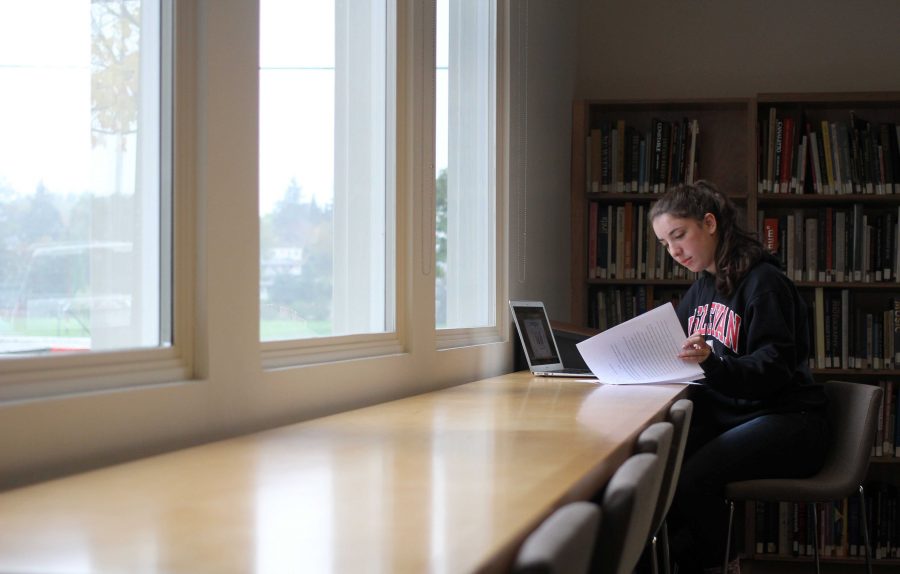Complaints from juniors strike a new interest from the teachers about the homework load and other stresses
Junior year can be notorious for long nights of homework and studying. Each year expectations rise and homework increases as students also become more efficient and prepared for college.
Upper School Director Ken Jaffe acknowledges that junior year is typically a step up for students regarding workload.
“Junior year, for a variety of reasons, tends to be more stressful for students than other years,” Jaffe said. “[Because of] pressure to do better, [juniors] spend more time on homework than they have in the past.”
Jaffe also says that external pressures for students can often be seen as extra homework, especially outside-of-school tutoring. English teacher Christina Serkowski says that she sees a step up in students’ effort level in junior year.
“Juniors feel like it’s a more stressful year whether or not classes are more difficult. Their grades are under greater scrutiny, and so more students want to do well,” Serkowski said.
Although these factors can result in an extremely strenuous year, U Prep has been working to give no more than a reasonable amount of homework to students. U Prep has been doing its best by attempting to stay in touch with students and check in, making sure they’re not too overwhelmed.
History teacher Pat Grant says that in order to keep homework in check, he likes to ask for student feedback.
“I frequently survey students about how much time they spend on homework,” Grant said. He does this to make sure he is giving a reasonable amount.
Many students agreed that each class’s homework is in fact very reasonable, but when added to other core classes and electives it can become overwhelming.
“I don’t think each individual class is asking much of us, but they don’t always think about the fact that we are taking five or six other classes and it adds up,” junior Emily Lin said.
However teachers also try to be aware of this when assigning homework, especially for juniors.
“Thirty-five minutes of homework [per class] is [a] good [amount]. If it gets to 45 then it’s too much because if you multiply 45 by six, it ends up being [more than four hours],” Grant said. “That’s only doable if you have a free period and no major outside of school commitments.”
But even then, each subject’s homework sometimes exceeds forty-five minutes and many juniors have jobs or sports.
Serkowski suggests either having fewer classes or switching to a full block schedule. This could help reduce conflicting homework by giving students an extra day in between different subjects.
“I feel that the root problem is the assembly-line structure of schools.” Serkowski said.
By: Leah Bell


